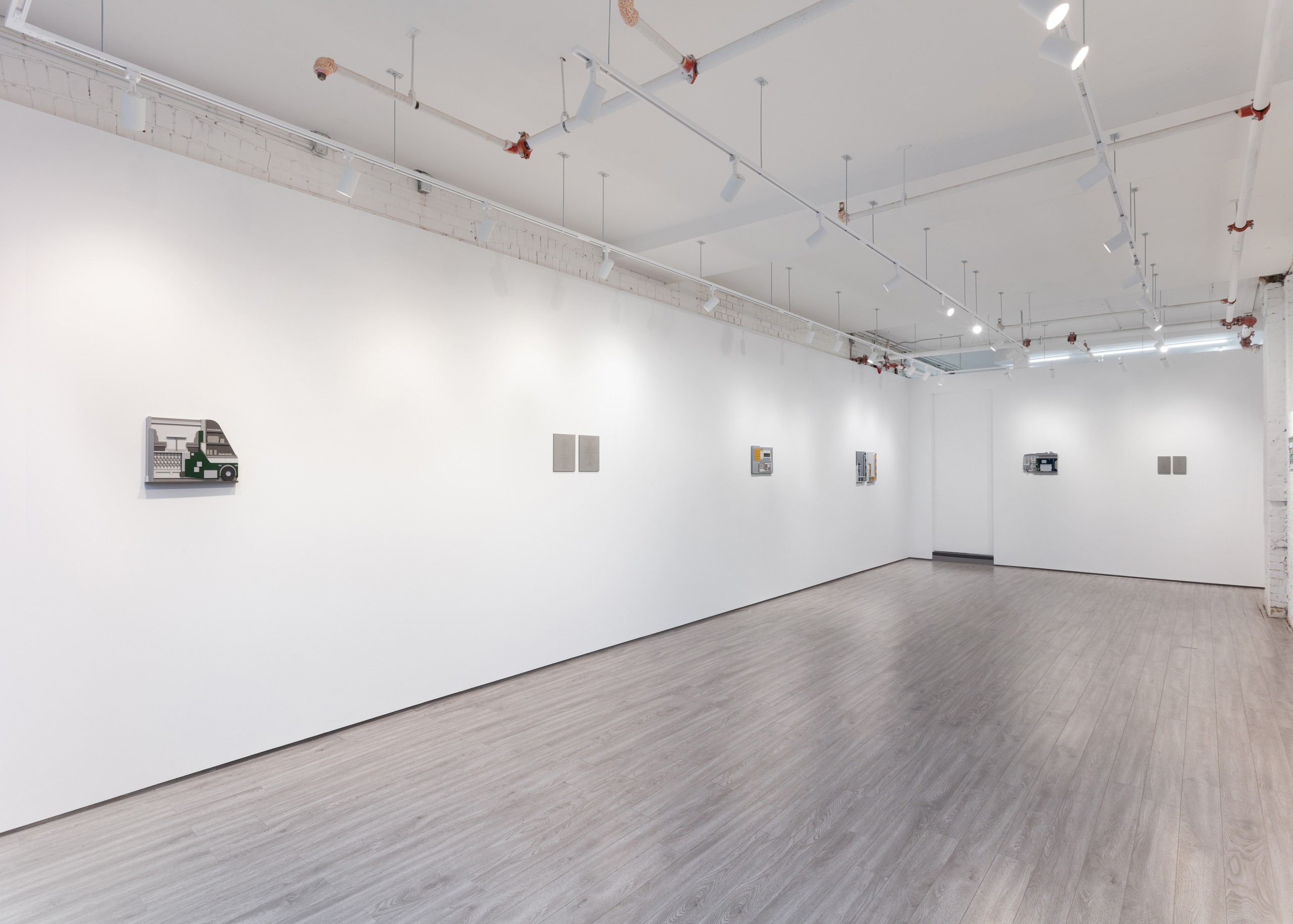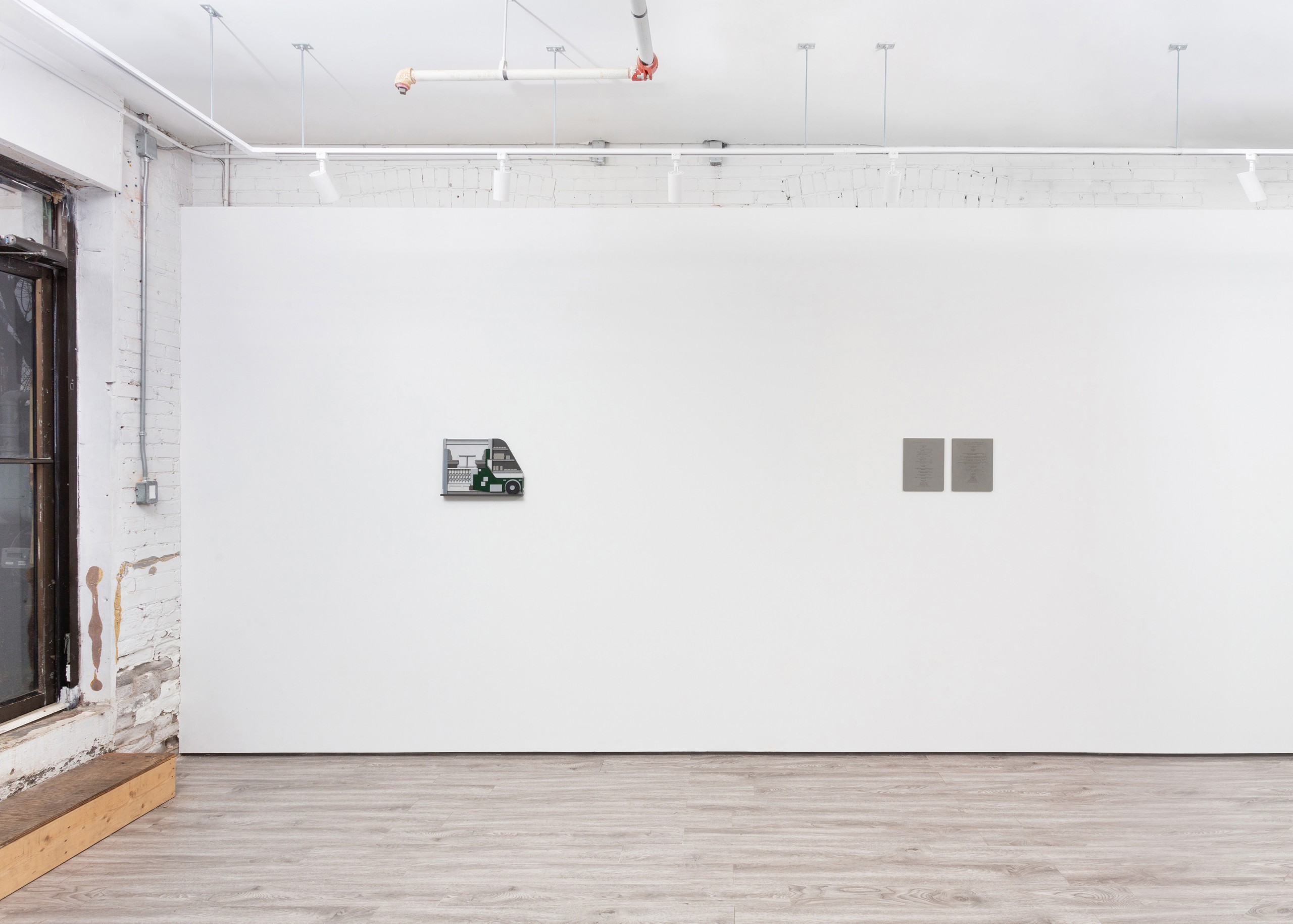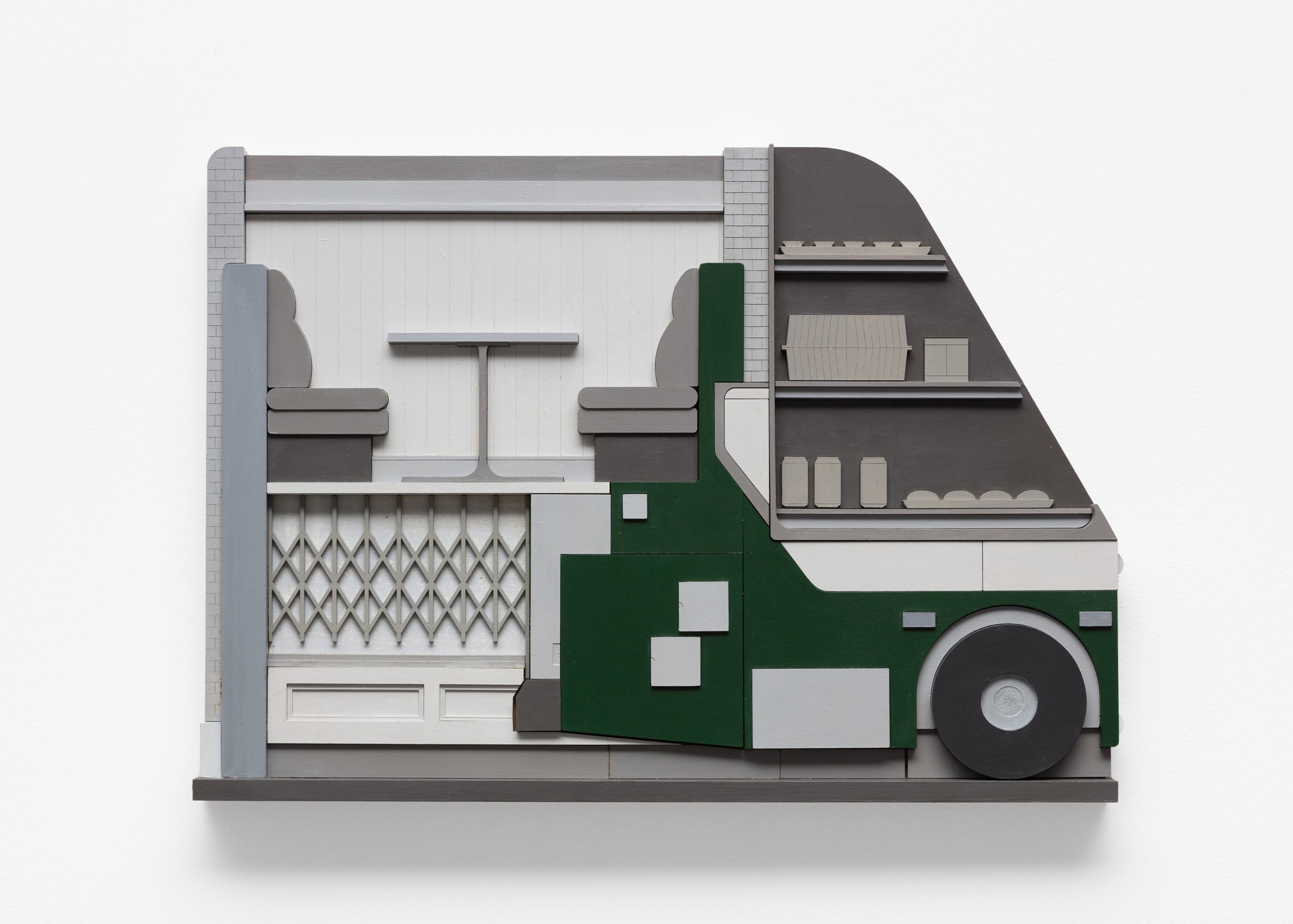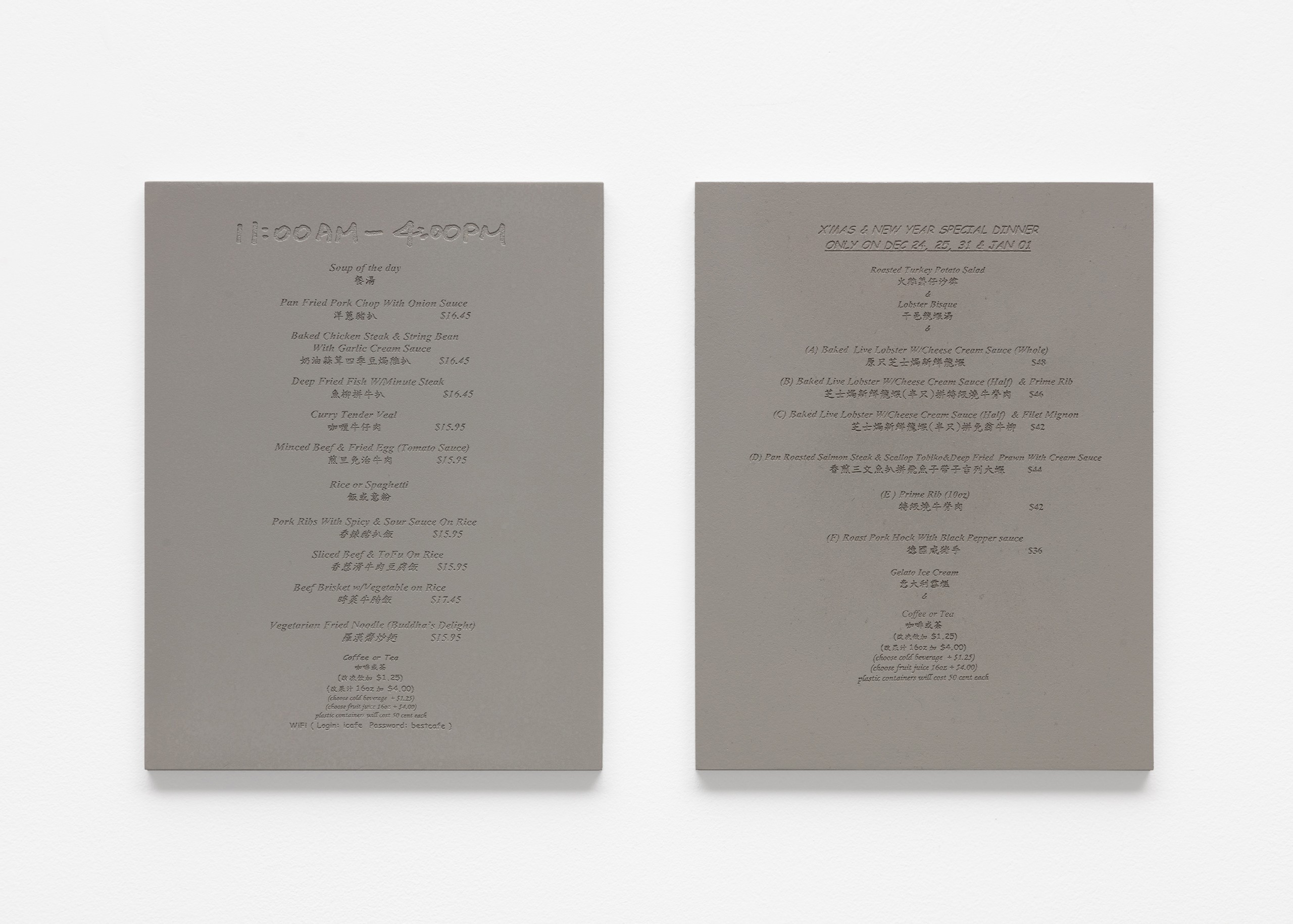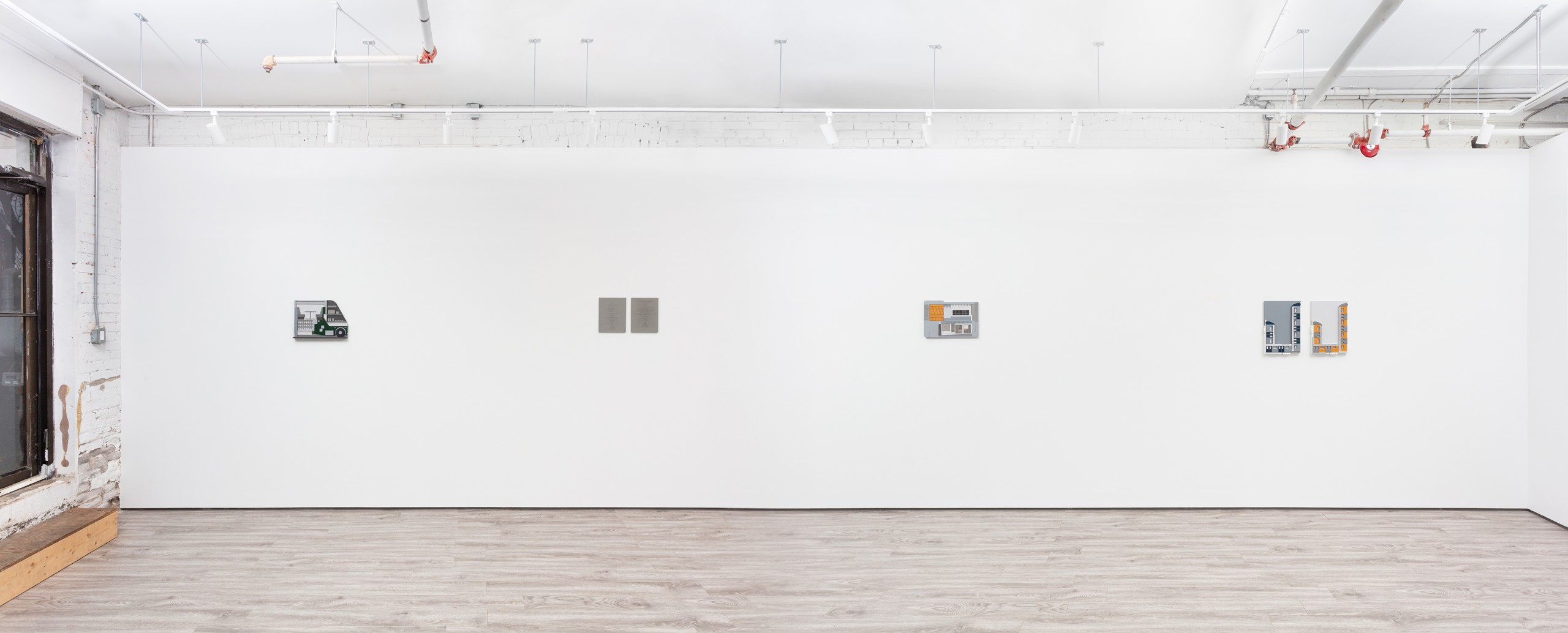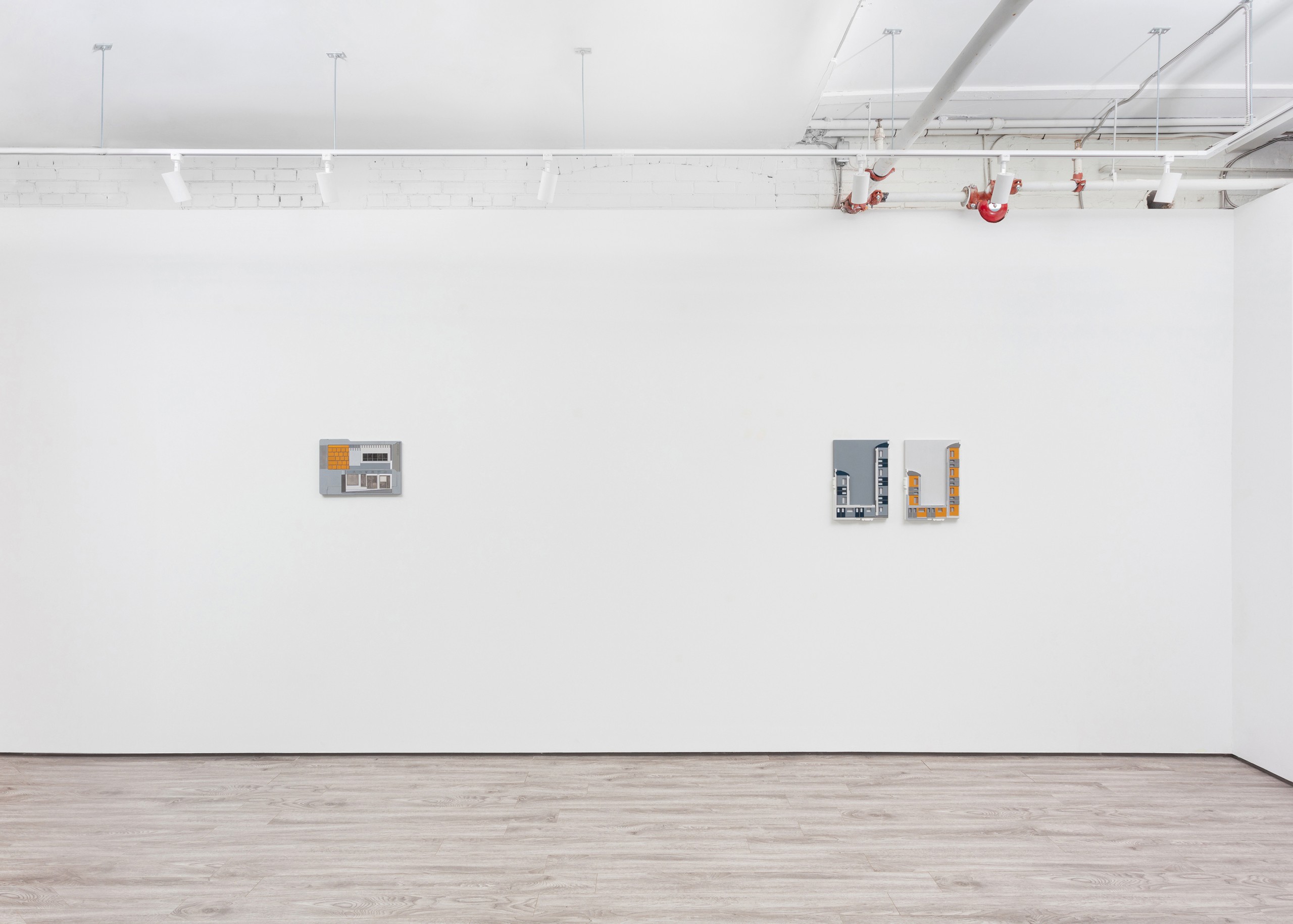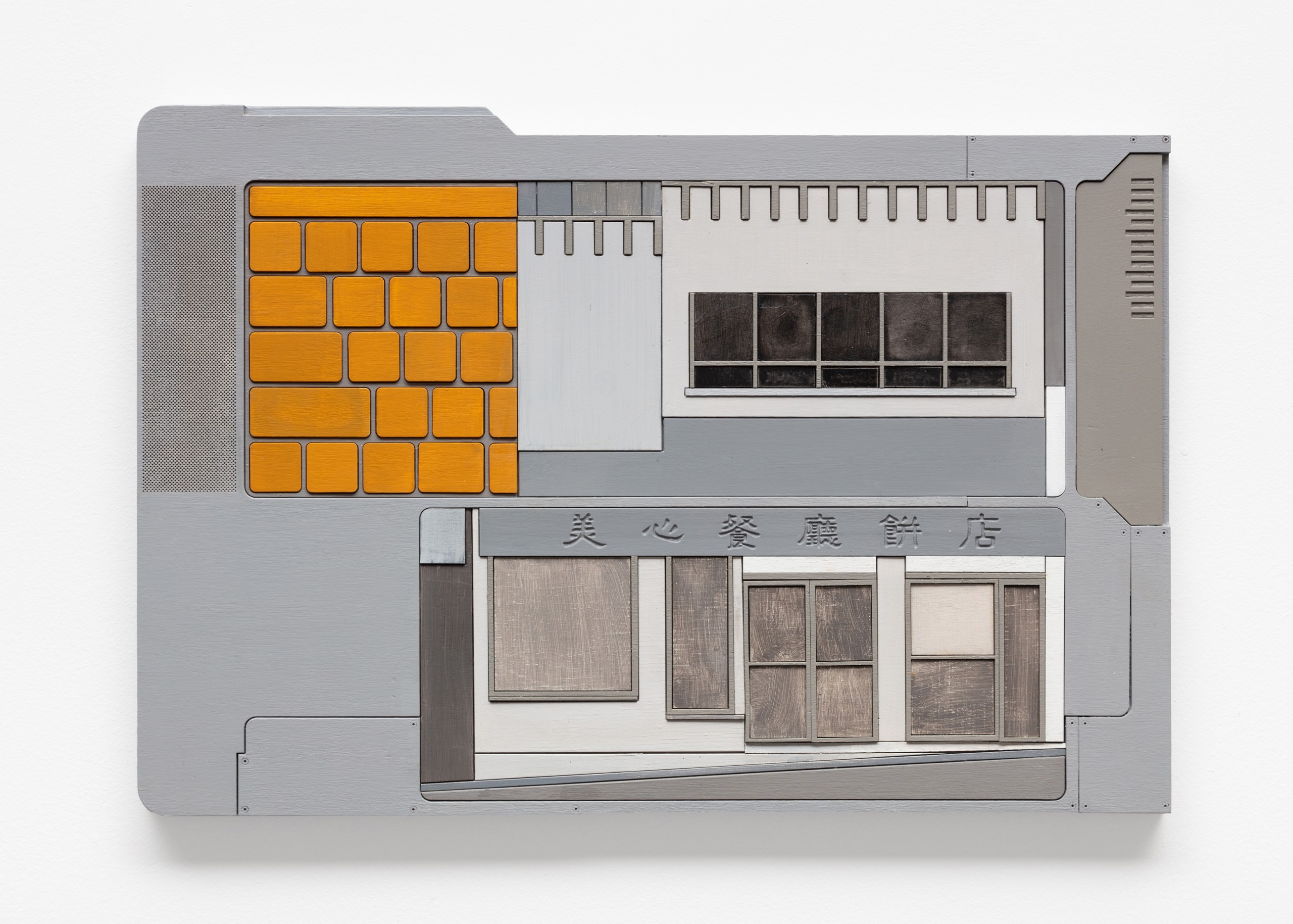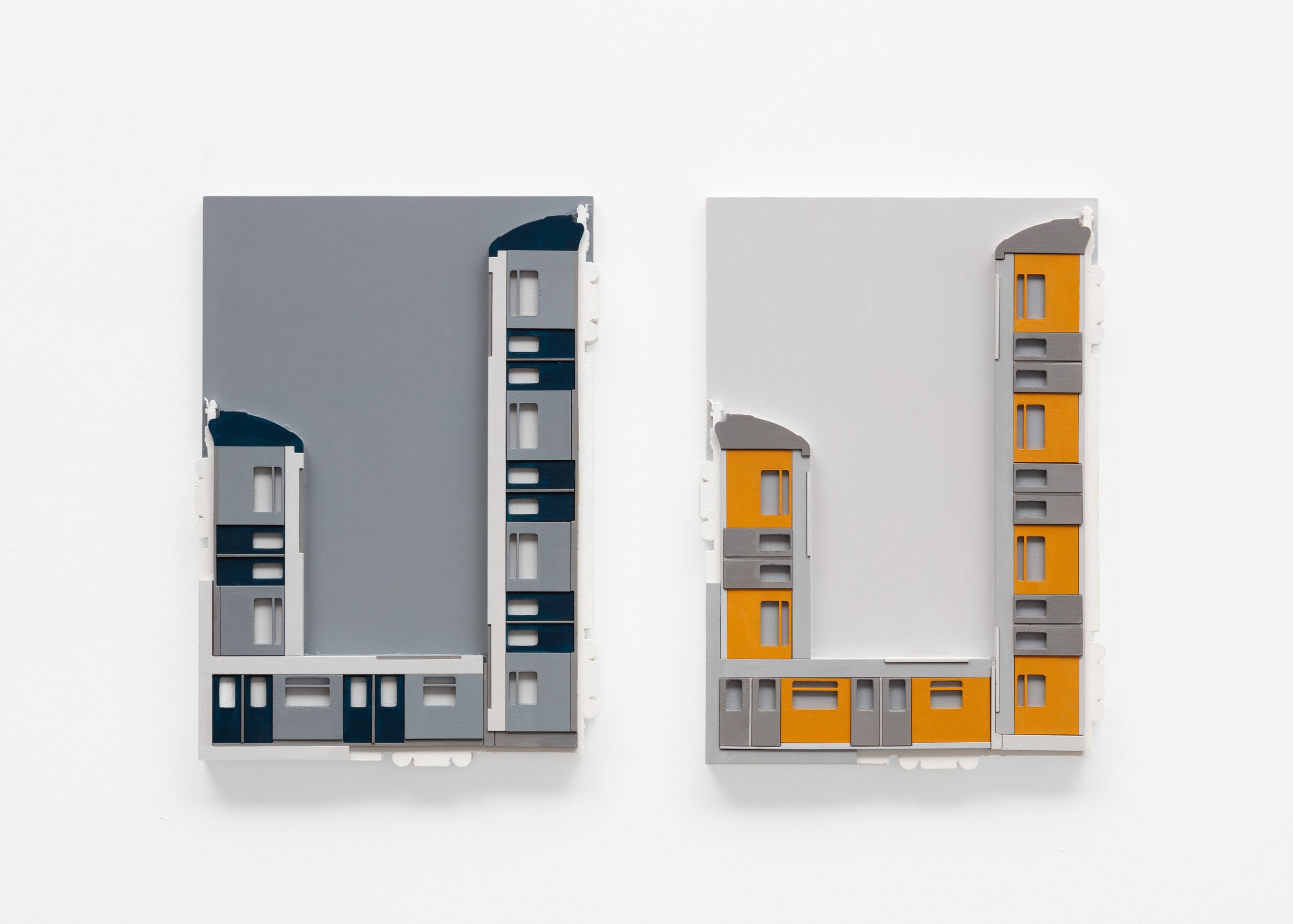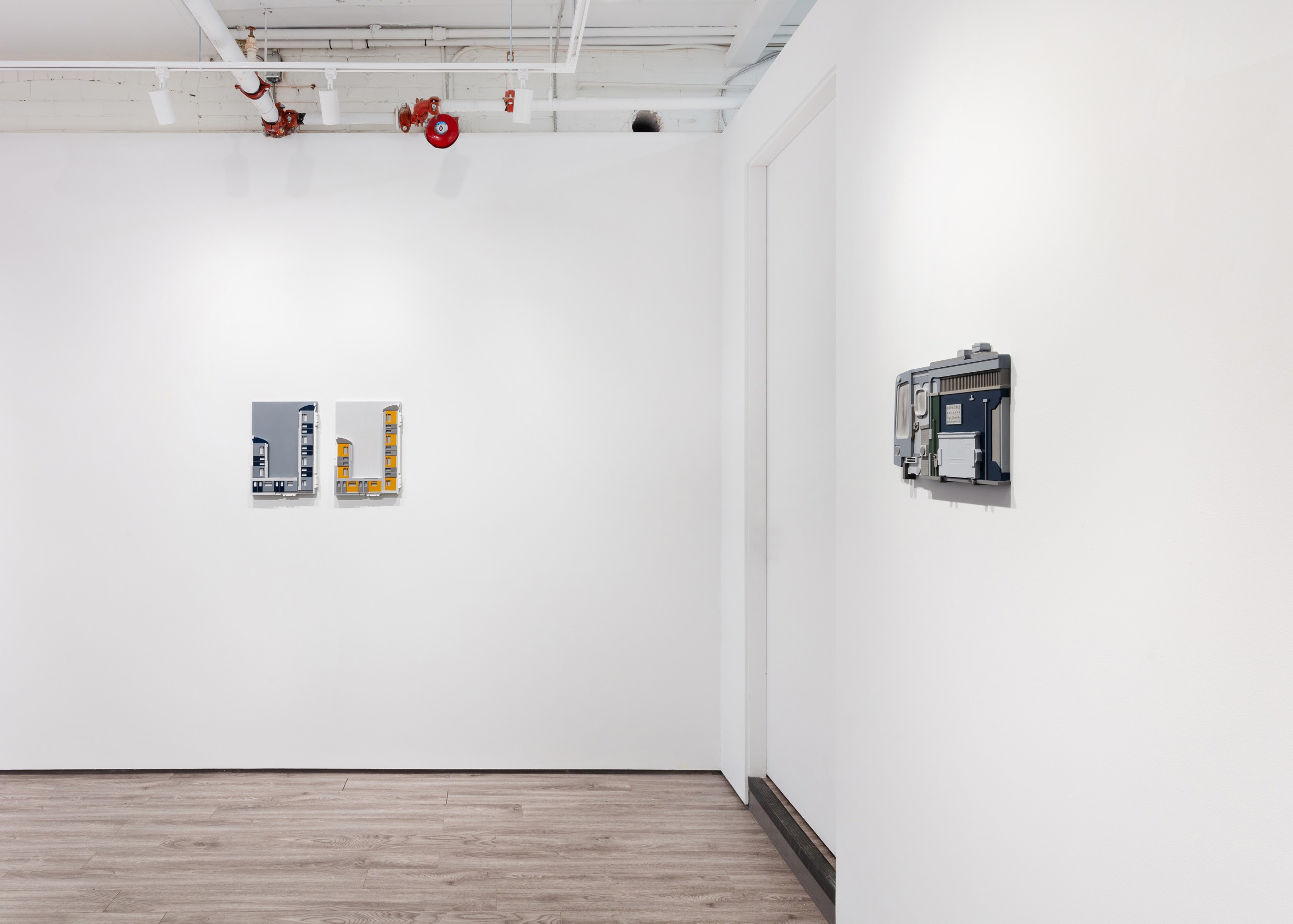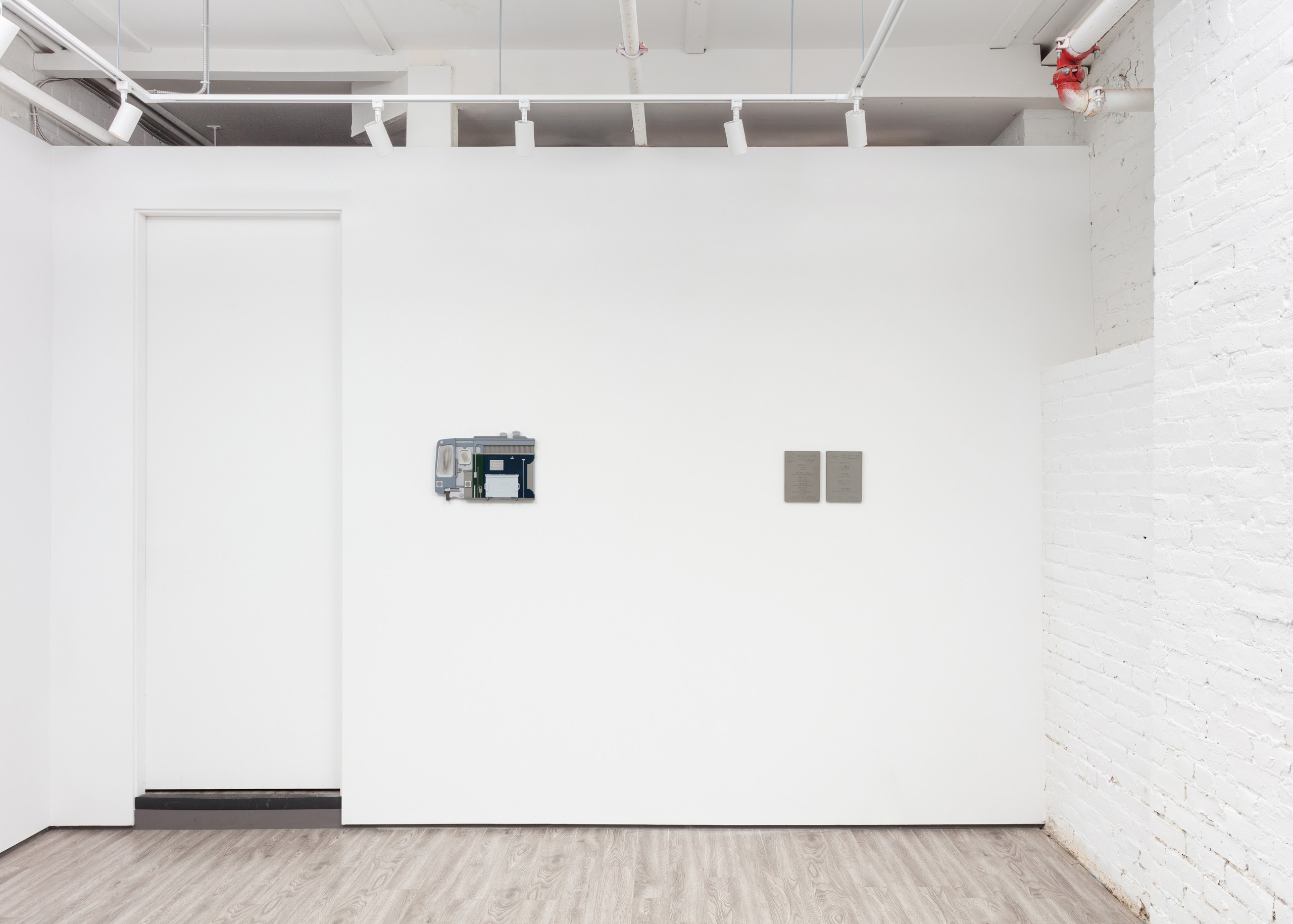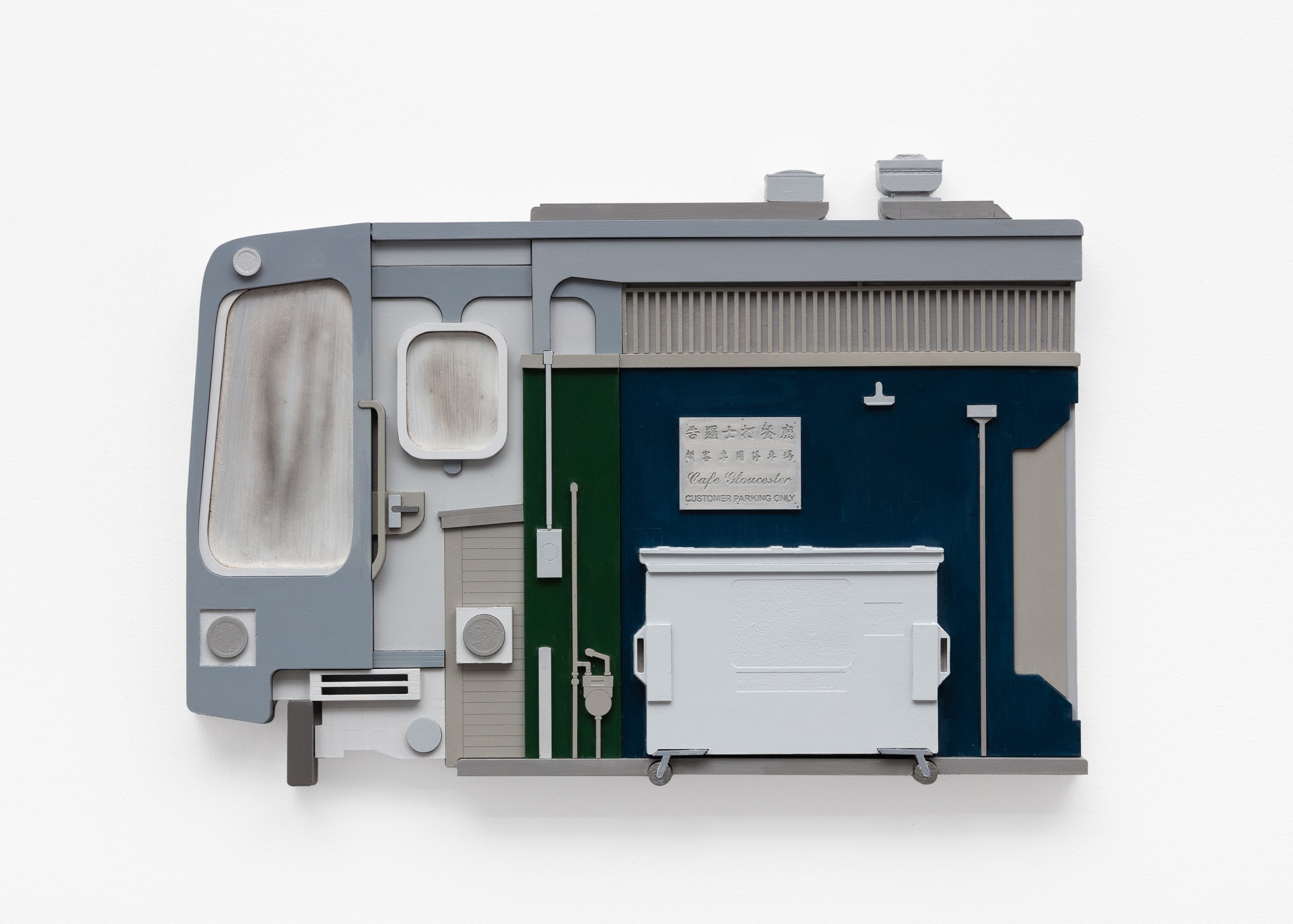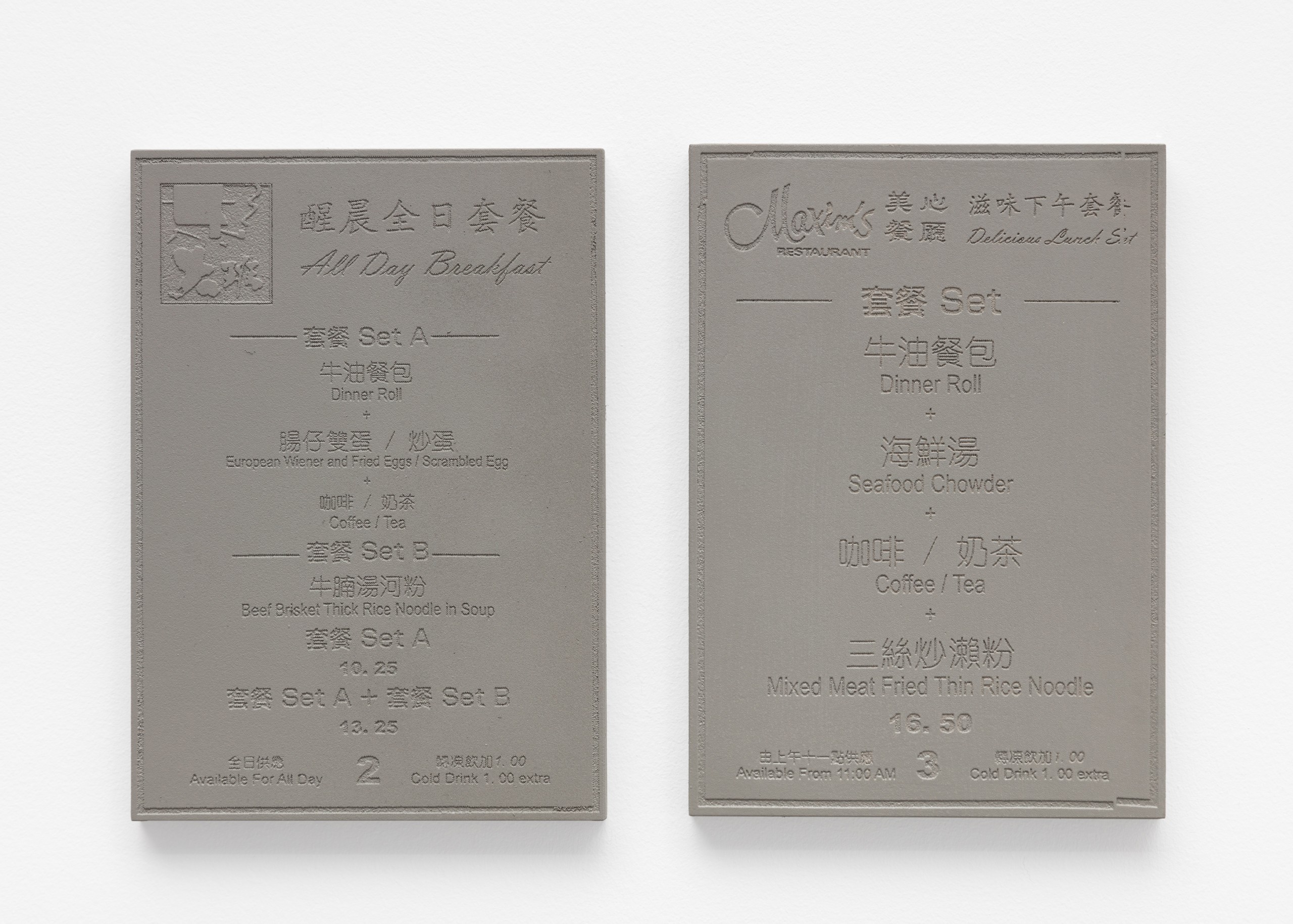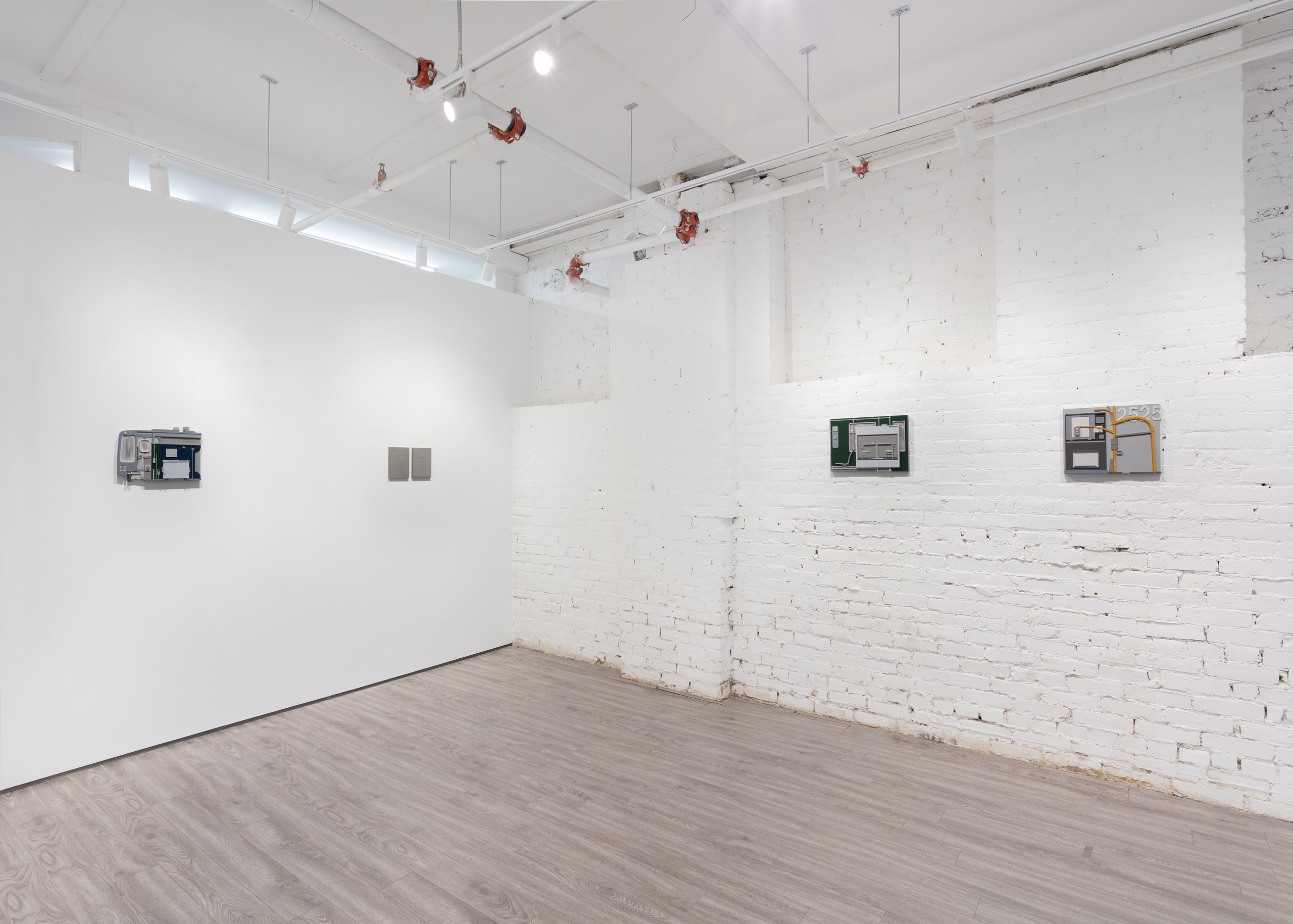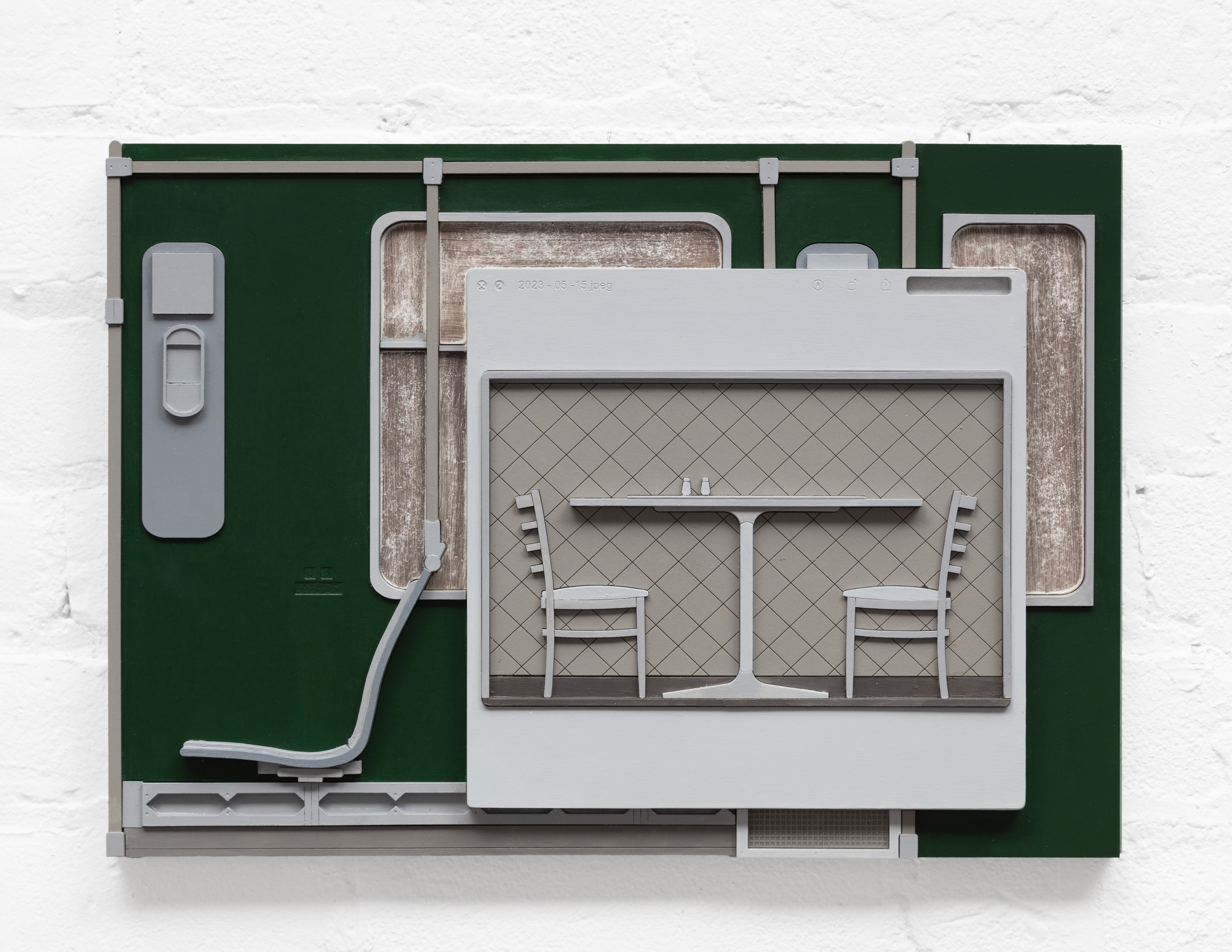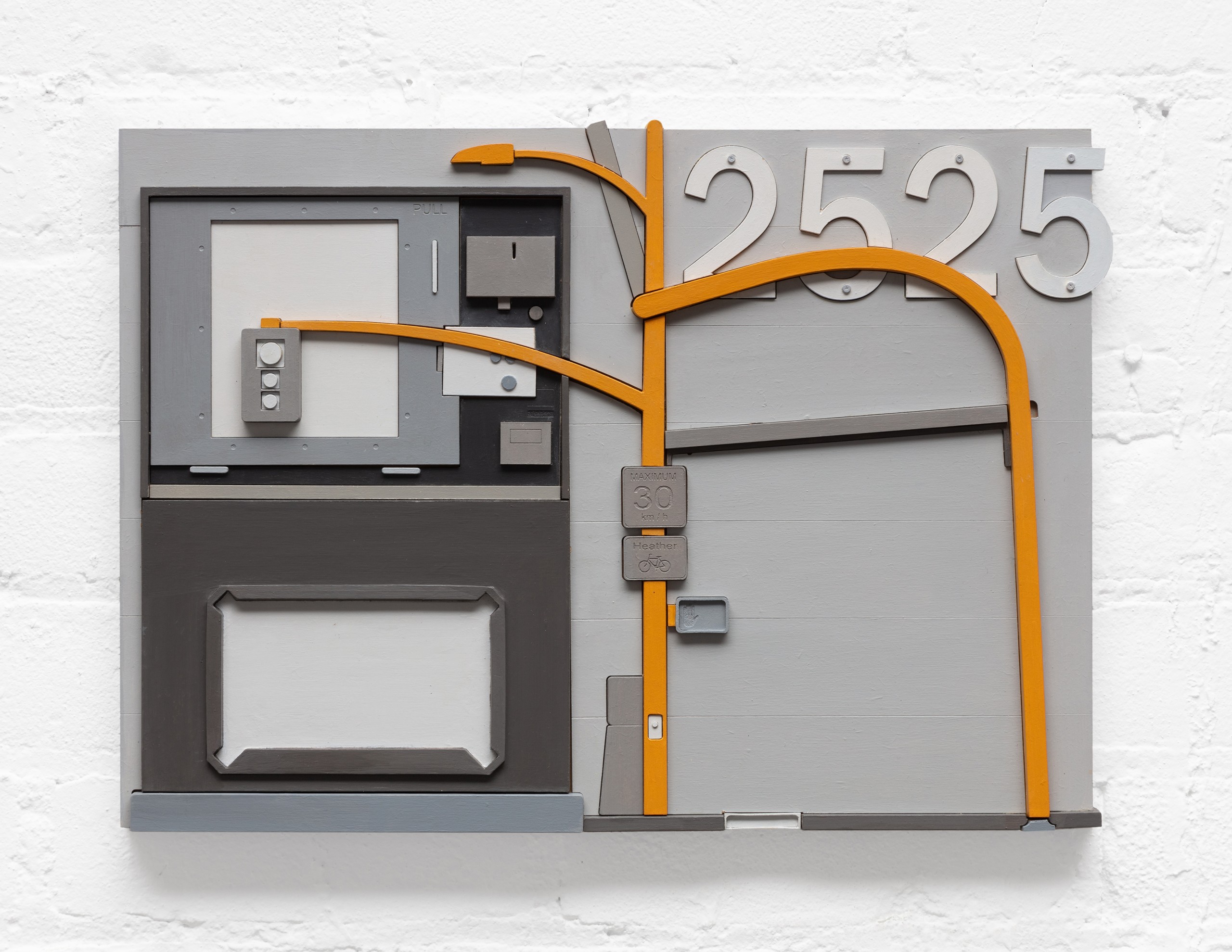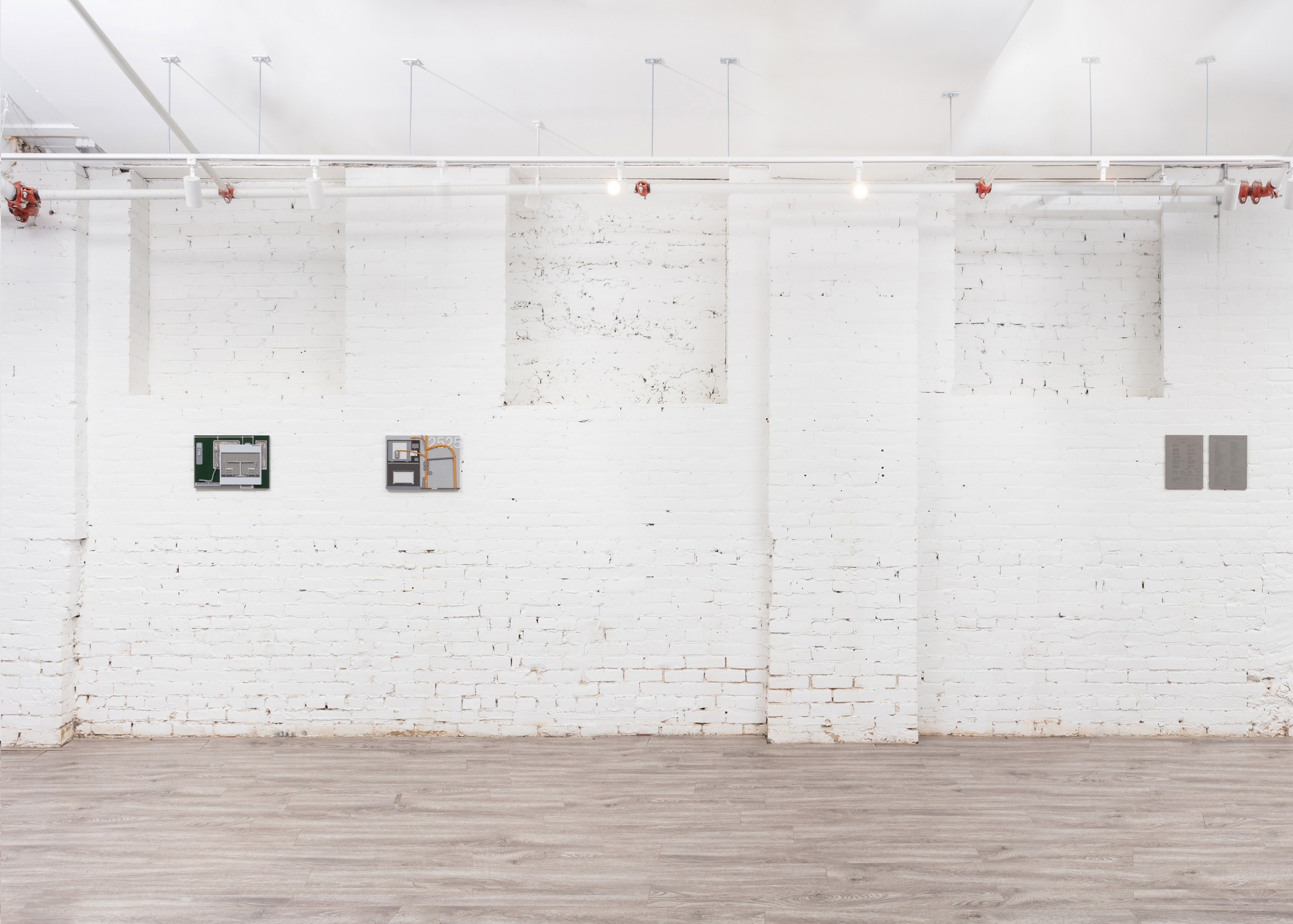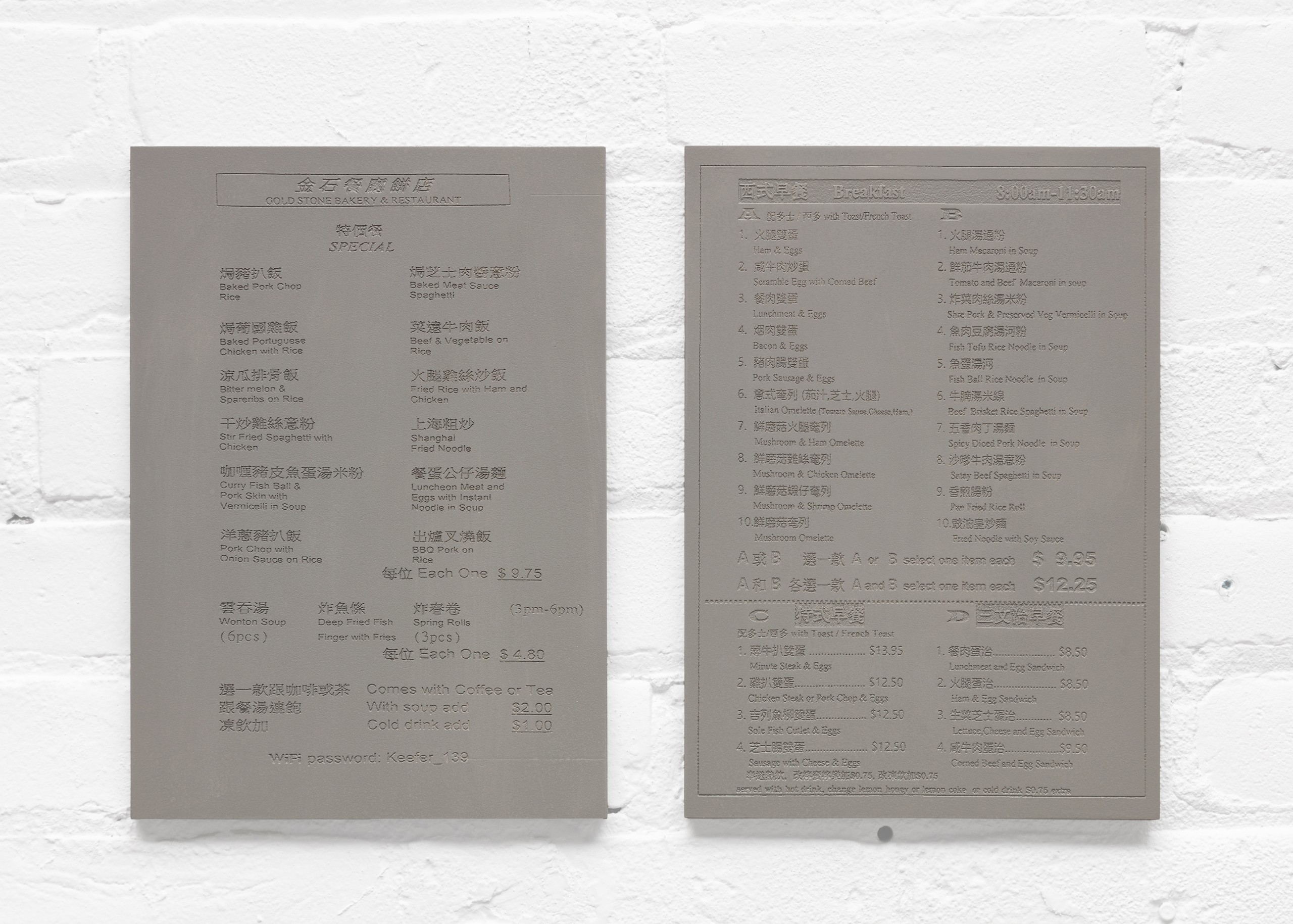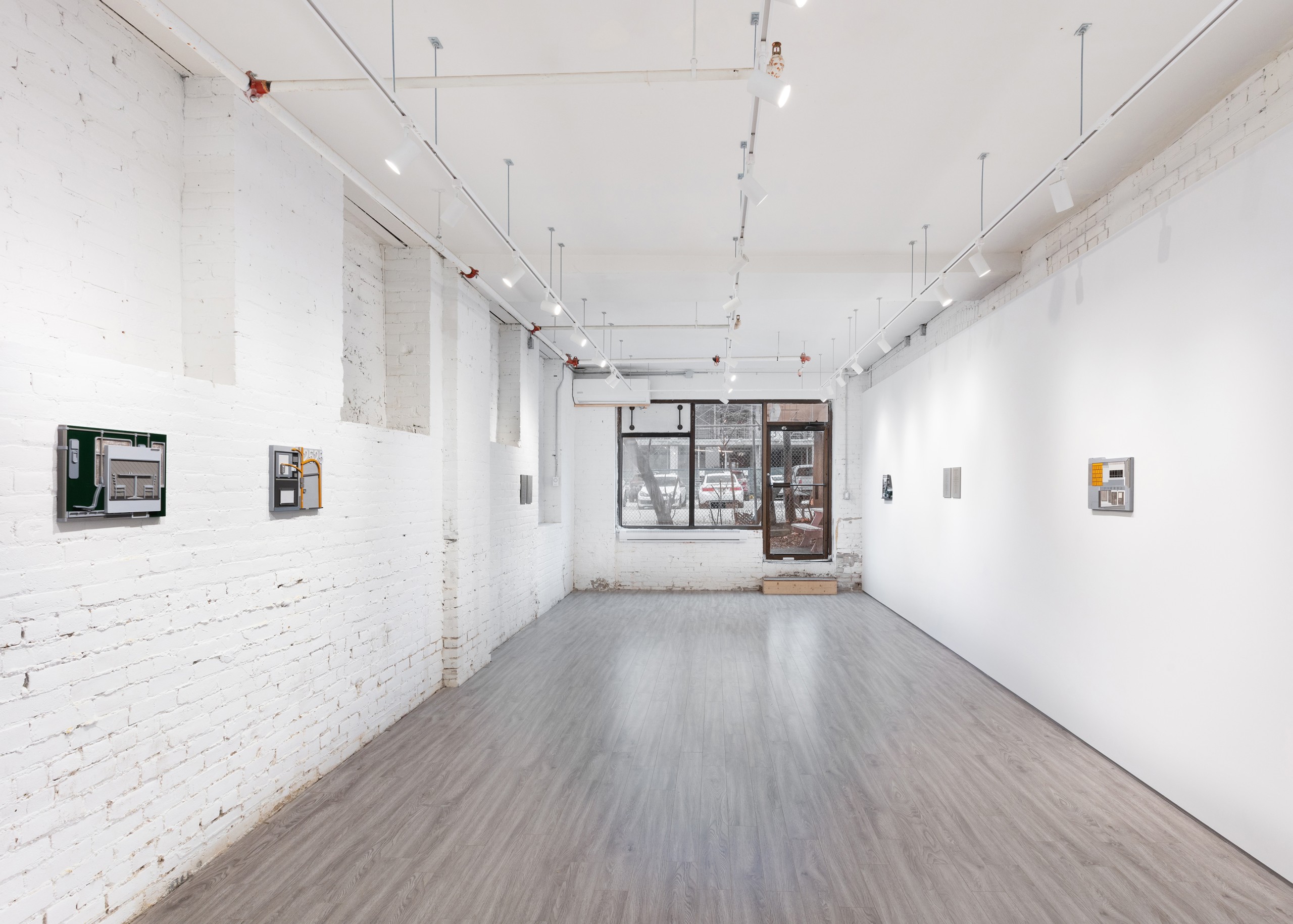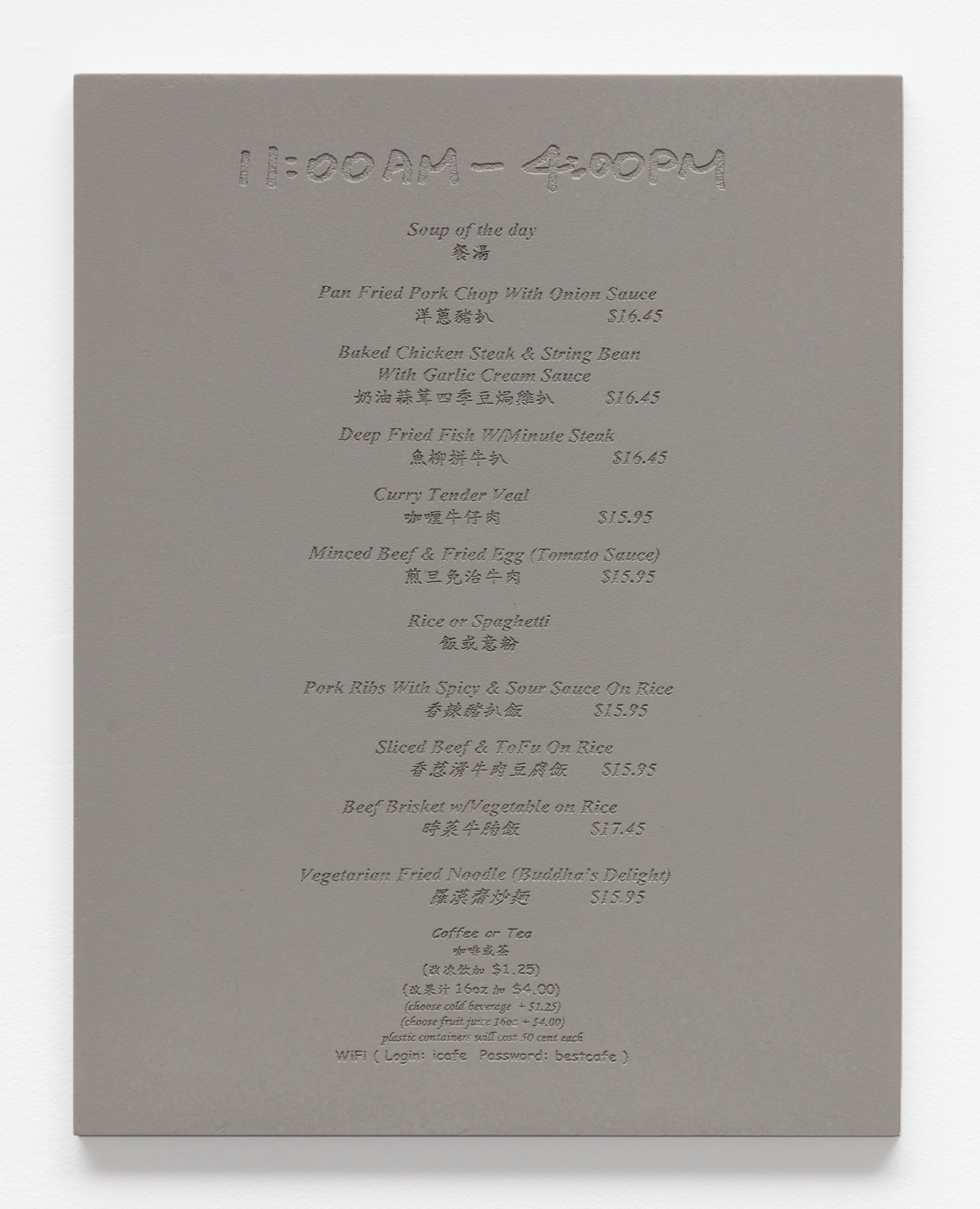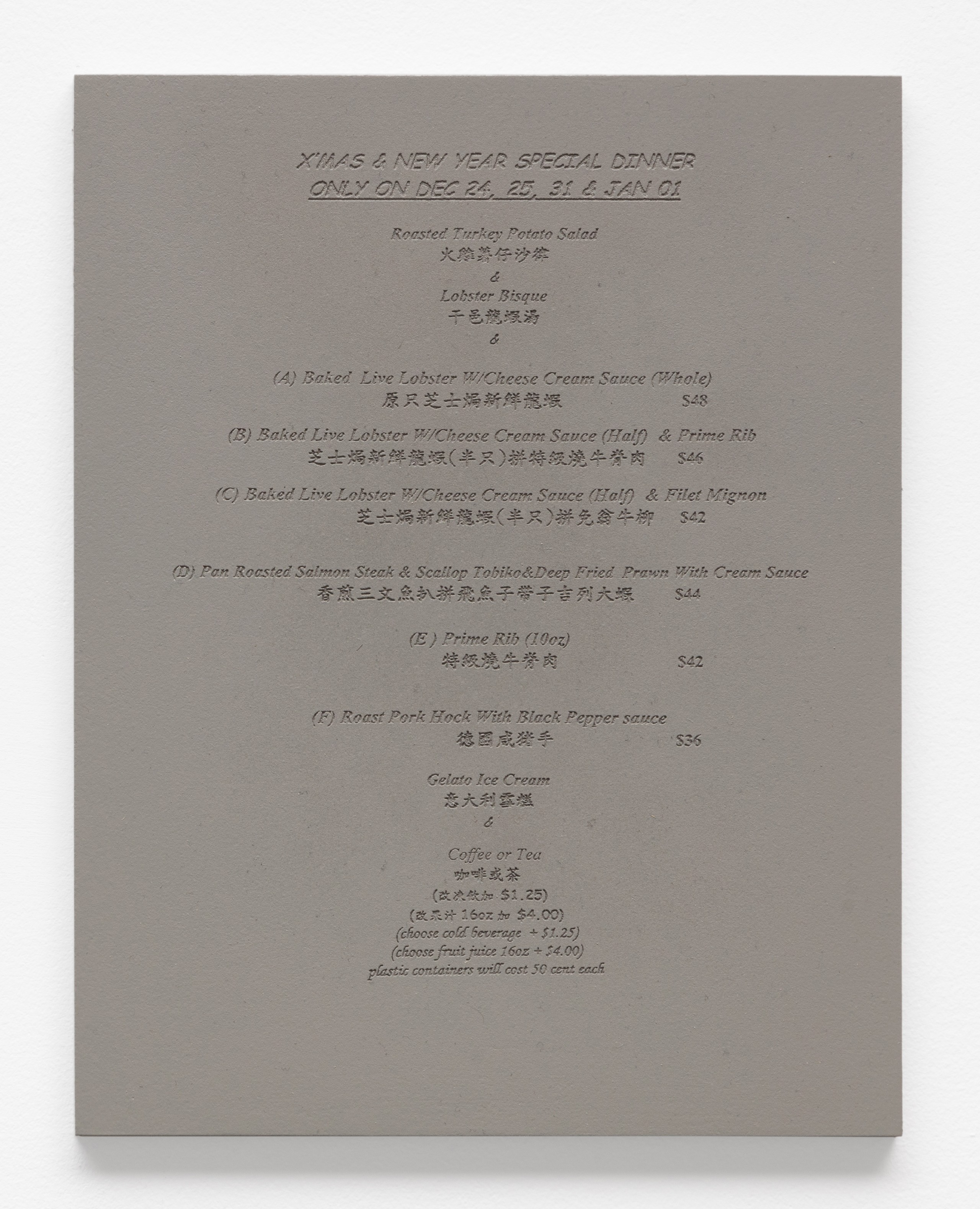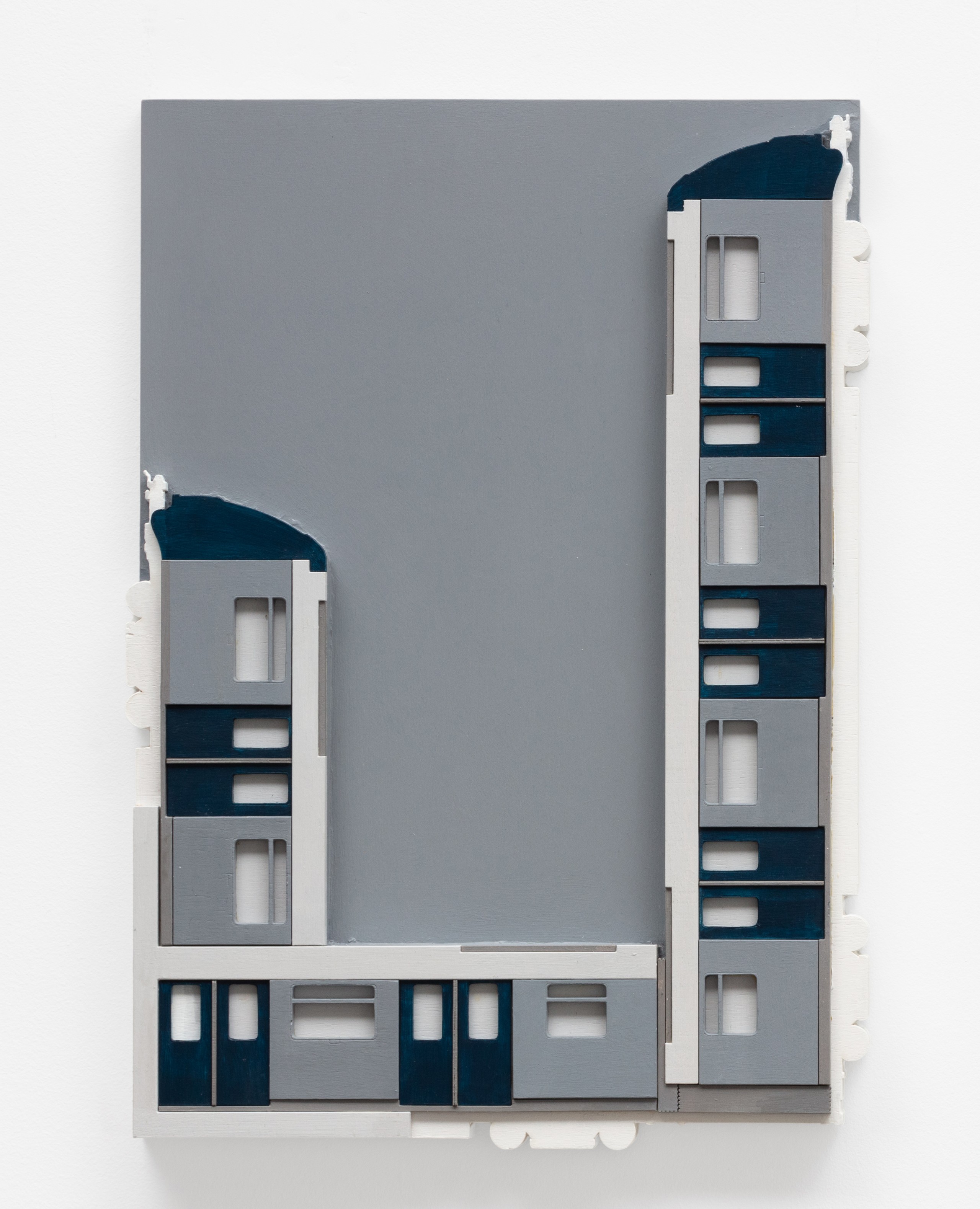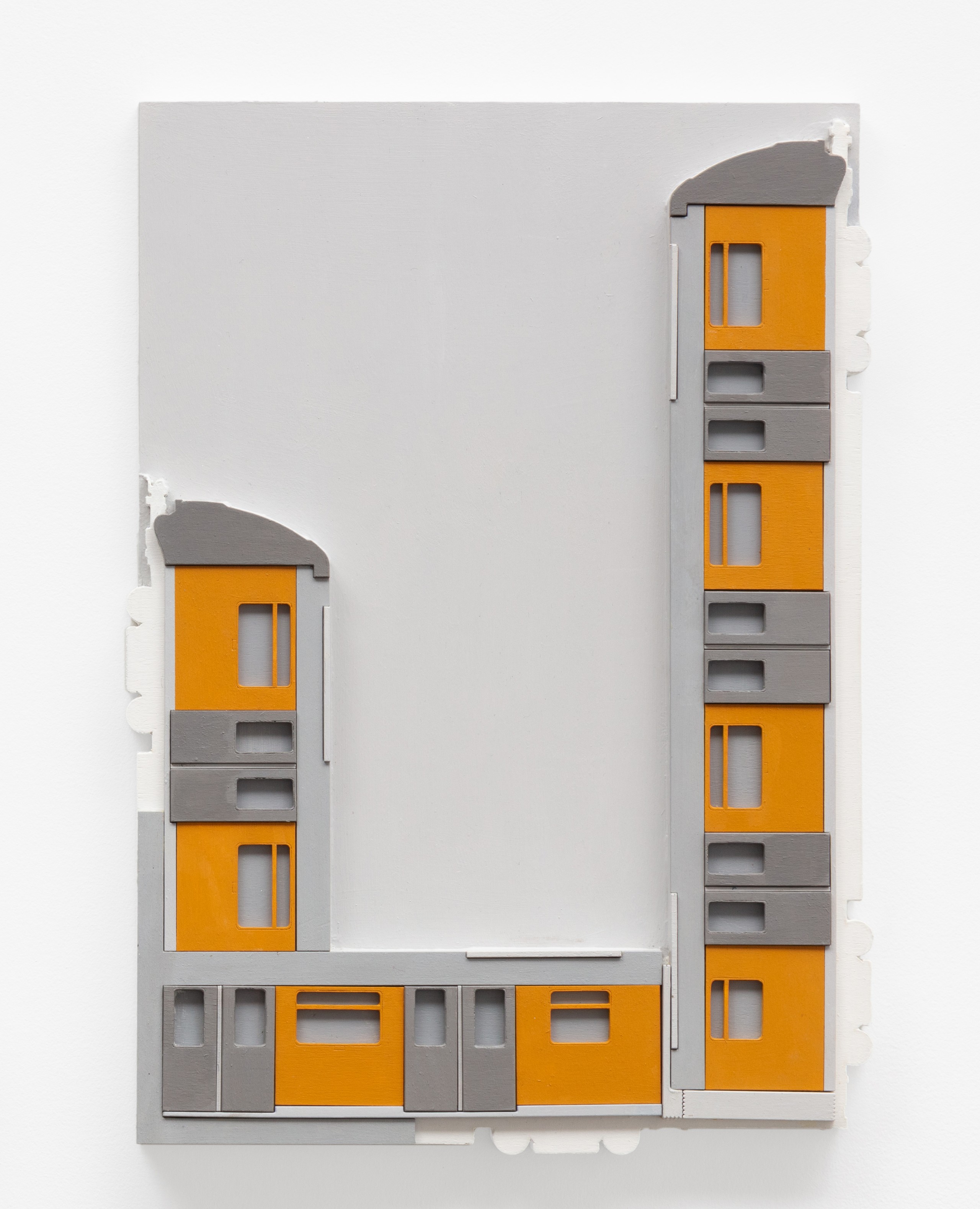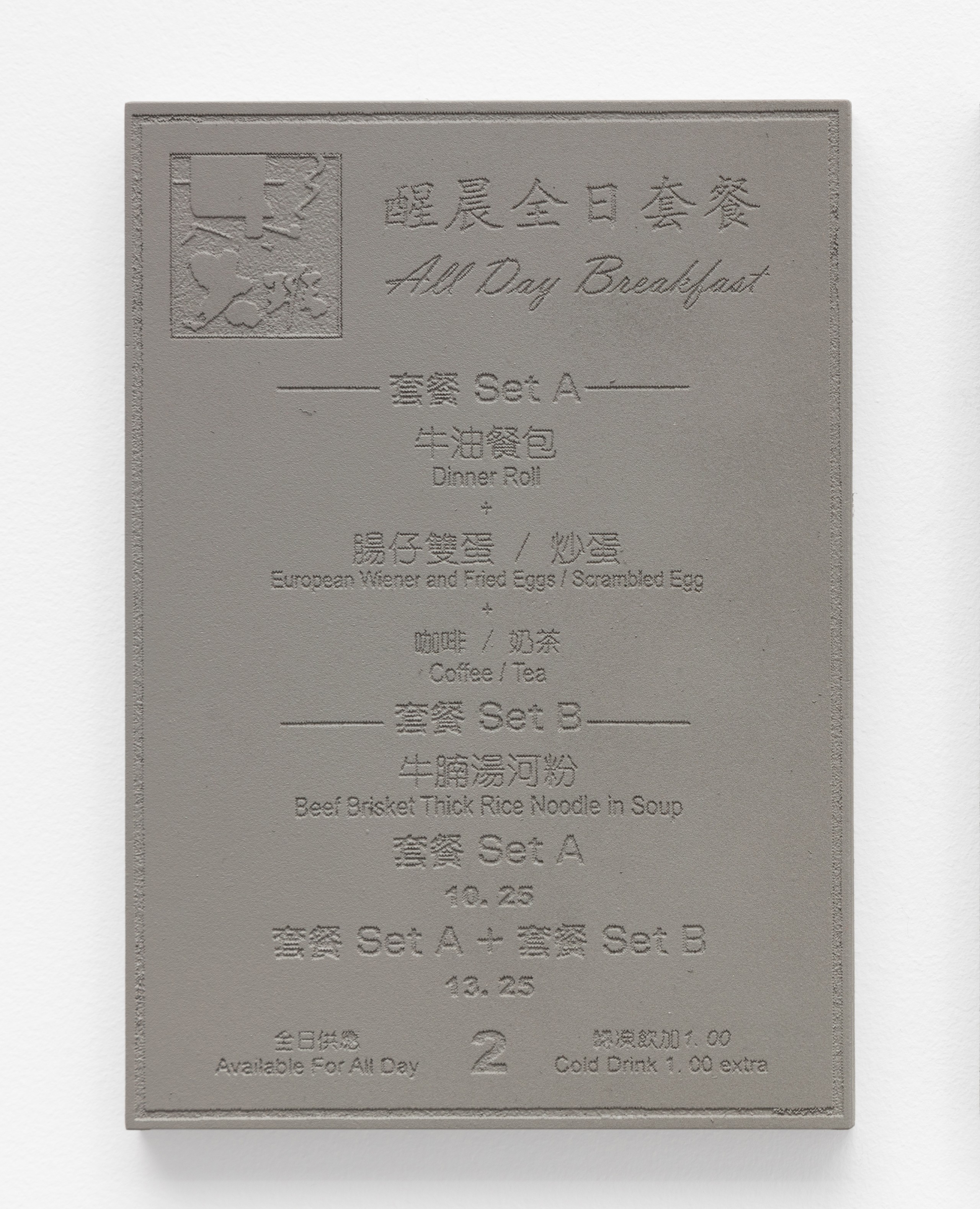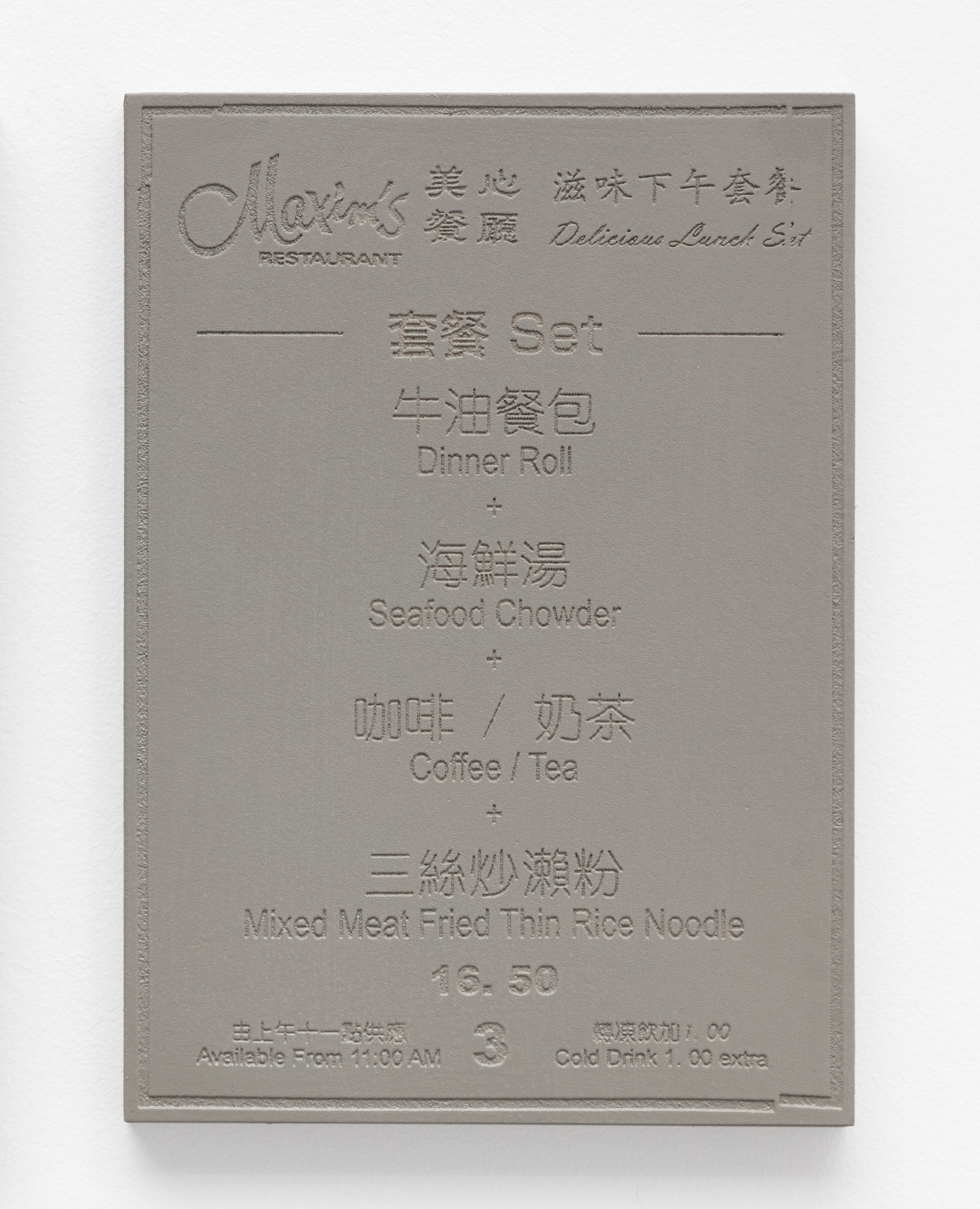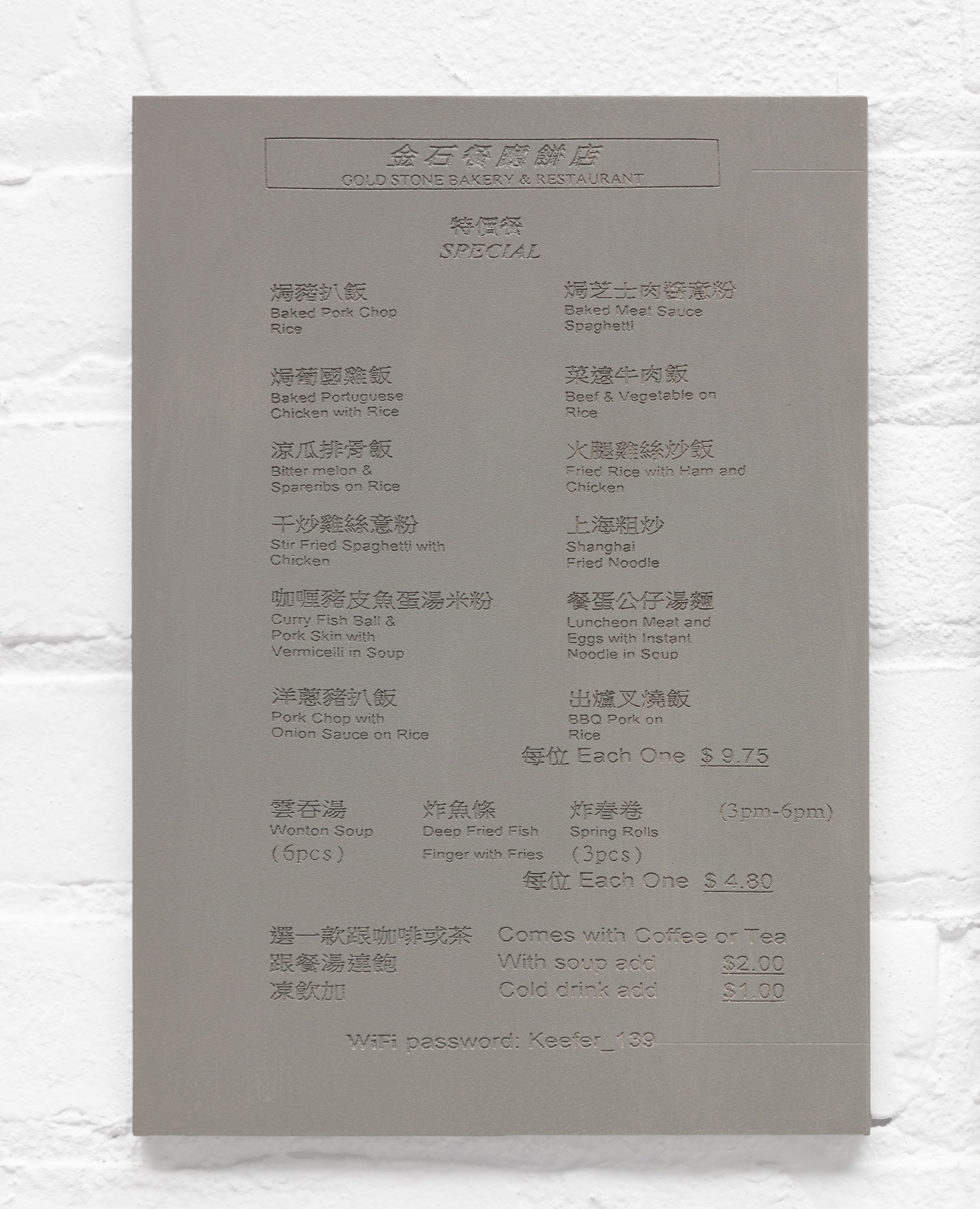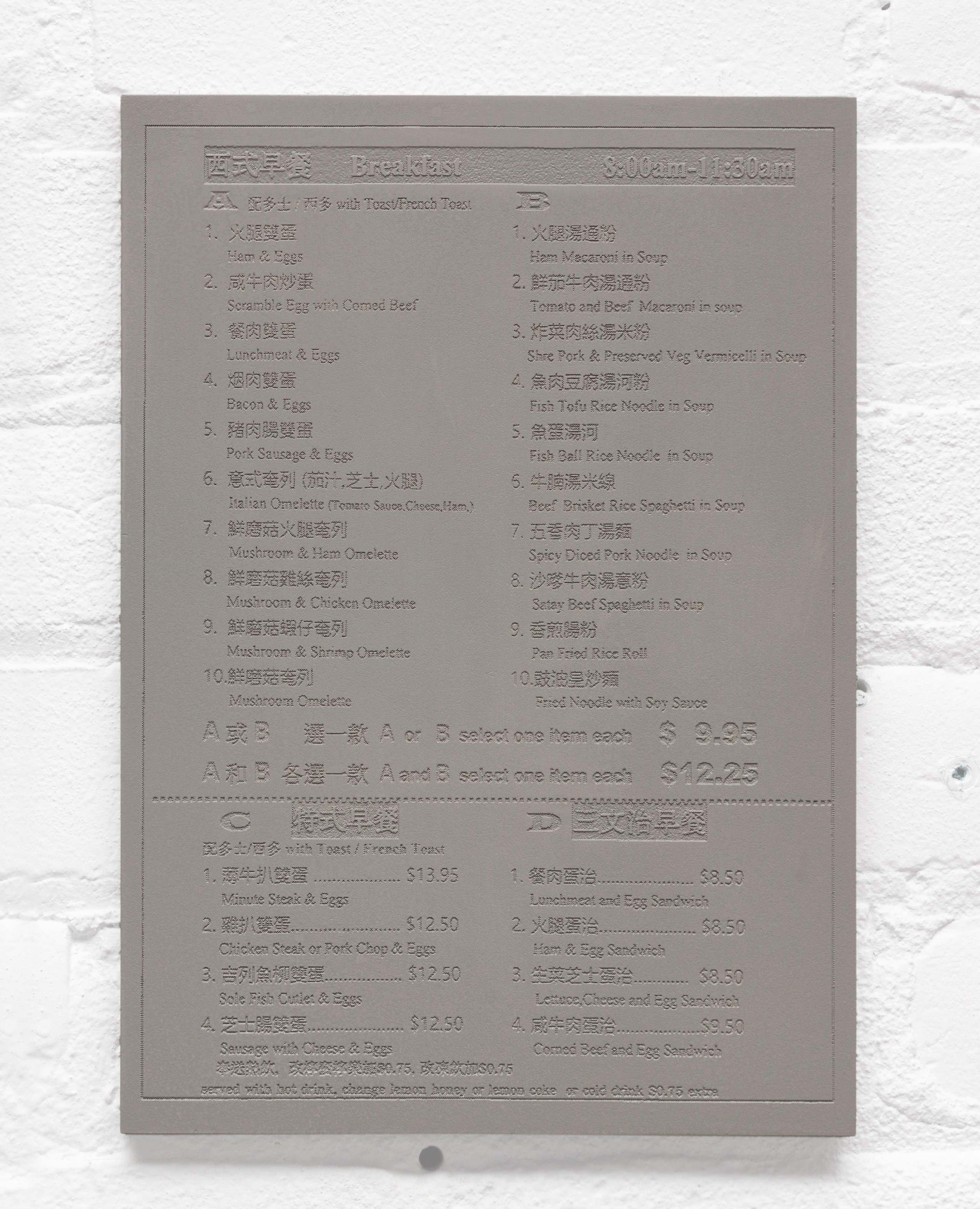Towards is pleased to present Loose Leaves, an exhibition of new works by Adam Shiu-Yang Shaw.
Within his practice, Shaw tracks the evolution of civic landscapes. Interpreting cycles of fragility, vanishment and regeneration in urban space, his works bricolage fragments of the shifting settings he inhabits. Shaw studies neighborhoods in flux, redeveloping industrial sites and dynamic infrastructure typologies. In doing so, he contemplates perfunctory, and oftentimes overlooked, facets of the built environment. Synthesizing distorted replicas of such details, Shaw addresses the furnishings which backdrop public life. These works paraphrase environmental shifts, exploring how contemporary aspirations and cultural ideals mold the stages upon which everyday gestures are performed. Through approaches to modelling, sceneography and museological display, Shaw elaborates upon the surreal undertones of metropolitan banalities.
This latest series of reliefs and engravings on panel illustrate Shaw’s early investigations of Hong Kong-style cafés or ‘cha chaan teng’ (‘tea restaurant’ in Cantonese). Amalgamating elements of Chinese cuisine, with that of Western diners, these establishments exemplify a plaiting of Hong Kong and British culture - illustrated through Canto-western dishes, milk-based teas and café architecture. Using culinary and decorative symbols, Shaw questions how cha chaan teng illuminate certain aspects of Hong Kong identity. In particular, he explores the ways these establishments have made once imperviable forms of colonial culture readily accessible, through acts of facsimile, appropriation and reinvention. Contemplating how mimetic models can be utilized to agitate cultural partitions, Shaw demonstrates the dismantling of old categories – and the emergent forms reconstituted from their remnants.
Loose Leaves specifically focuses on foreclosed and operational Hong Kong cafés located within metro Vancouver, intertwined with renderings of local public transit systems. Referencing historical conceptions of the ‘tea house’, alongside contemporary transportation services, the exhibition centers on themes of congregation, discourse, and mediated perceptions of social life. Shaw’s works draw from online customer review portals and transportation message boards, observing how residents catalogue their private experiences within public forums (ie. culinary assessments and spatial mapping) and speculate upon future developments within the physical spaces they inhabit (ie. fictionalized transit routes and models).
Stitching together user-generated images, traced into vector-based graphics, Shaw connects civic gathering points with the transport technologies which thread between them. These works tabulate insolvent business, decommissioned transit models, and newly established businesses, contorted into fictionalized states. Using geographical proximities and intersecting timelines, Shaw produces an ongoing series of cartographic and temporal compendiums – reminiscent of databases from which they are composed.
The investigation posed in Loose Leaves begins with Keefer Street’s former Goldstone Bakery (established in 1986, and foreclosed in 2020) alongside Vancouver’s inaugural rapid transit system (SkyTrain), initiated for the 1986 World Exposition on Transportation and Communication. Shaw correlates localized symbols of globalization, with mass Commonwealth migrations preceding Britain’s transfer of Hong Kong’s sovereignty to China. Using the city as his primary site of interest, he depicts the international proliferation of a municipally styled culinary phenomenon, adapted for its newfound conditions. Subsequent subjects which appear in Loose Leaves trace he evolution of Vancouver’s tea restaurants, transit structures and associated vernacular architectures into the present day.
Each work within the exhibition follows stationary standards – the same dimensional formats upon which the laminated menus and posters which index a restaurant’s offerings are composed. Like sheets of loose-leaf, Shaw’s compact engravings and reliefs act as quick and provisional sketches. A scattered collection of singular moments in time, they can be continually rearranged, shuffled or blown - as unbound pages or fallen leaves often are. Moments which flutter forward, uncoupled from their past and made anew with each successive encounter. From this continually compounding action of reiterating the passing juncture, we might imagine the ways in which public and private life, will be captured, recounted and reenacted in forthcoming reflections upon the present-tense.
